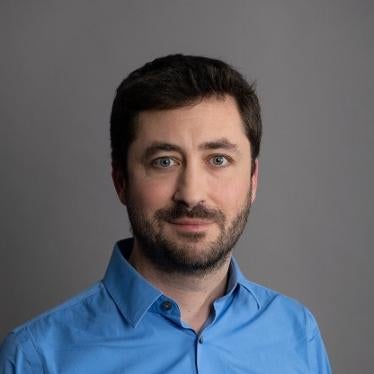The news came on May 11. Tajik prosecutors demanded life sentences for four jailed leaders of the banned Islamic Renaissance Party of Tajikistan (IRPT), the country’s main opposition party. Authorities also sought to imprison 13 other party leaders for up to 30 years.
Among those facing life in prison is Mahmadali Hayit, the party’s deputy chairman, long known in Tajikistan’s civil society circles for his vocal support for human rights, freedom of expression, and freedom of religion.
The harsh sentences sought by prosecutors contrasted sharply with comments only a few days earlier by Tajik Justice Minister Rustam Shohmurod, who attempted to reassure diplomats in Geneva about the state of human rights in the country.
On May 6, the UN Human Rights Council held its Universal Periodic Review (UPR) debate dedicated to the rights situation in Tajikistan. The UPR is a review of the human rights record of all UN members by their peers every four and a half years. The tone of the debate is often highly diplomatic and procedural. But Shohmurod’s comments that “the construction of a democracy in which rights and freedoms are very important to the state” did not convince some among Tajikistan’s close international partners who are increasingly concerned about the country’s trajectory.
A number of years ago, a long list of serious human rights problems in Tajikistan—torture in custody, Internet censorship, severe restrictions on religious freedom, and widespread domestic violence—would have provided more than enough subject matter for the debate in Geneva.
But in 2015 Tajikistan’s rights situation took a decided turn for the worse. Tajik authorities banned the IRPT in September, declaring it a terrorist organization. Over one hundred opposition activists were imprisoned, and officials harassed non-governmental organizations with onerous checks. In March 2015, an opposition figure, Umarali Kuvvatov, was shot dead in Istanbul under circumstances that suggest it was politically motivated.
Beyond the crackdown inside the country, Dushanbe has sought the detention and forcible return to Tajikistan of peaceful Tajik political activists in Belarus, Kyrgyzstan, Kazakhstan, Moldova, Russia, Turkey, Ukraine, and elsewhere. And from the reports Human Rights Watch is receiving, the detentions of perceived government critics are continuing on an almost weekly basis.
The Tajik government is also tightening the screws on lawyers it deems troublesome. Four human rights lawyers and two sons of another prominent lawyer are imprisoned or detained on politically motivated charges, while other lawyers are being harassed and targeted for taking on politically sensitive cases.
What this amounts to is the worst human rights crackdown in Tajikistan since the end of the country’s civil war in 1997; hundreds of people are landing behind bars for no other reason than their peaceful political work.
While Tajikistan’s human rights crisis is expanding by the day, the response of Washington, Brussels, and other international partners has fallen seriously short.
That is why what emerged at the UN Human Rights Council’s session provides some hope that things could change. A small but meaningful number of diplomats spoke up in Geneva, sending a clear message that the direction Tajikistan is taking is deeply worrying. The US ambassador said he was “troubled by the worsening human rights situation in Tajikistan” and “alarmed by the increase in the number of politically motivated detentions.” He also called for fair and open trials for the jailed lawyers Buzurgmehr Yorov, Shukhrat Kudratov and Iskhok Tabarov.
Norway’s representative slammed the recent crackdown on political parties and groups, including the opposition movement Group 24, and called for the release of those arrested on politically motivated charges. Canada said that banning the IRPT and detaining its members restricts freedom of expression. Austria flagged its concerns on the fate of a jailed opposition leader, Zayd Saidov. France called for a fair trial for IRPT leaders, and the Danish delegation slammed the government for arresting lawyers. Many others raised strong concerns about torture, online restrictions and threats to nongovernmental groups.
The UPR debate came on the heels of the visit to Tajikistan in early March of David Kaye, the UN’s top human rights expert on freedom of expression. At the end of his mission, he made it clear that the drastic measures against opposition groups and critics cannot be justified by national security imperatives, and stressed that the government failed to provide credible evidence that the IRPT was involved in violence. For Kaye, “a climate of fear has descended upon key sectors of civil society.” He warned against the unjustified use of secret trials against the party’s leadership. Several countries rightfully echoed his critical findings during the UPR debate.
David Kaye’s visit and the strong language from a number of UN states in Geneva struck the right tone and showed that these international partners do not accept Dushanbe’s line that routine counterterrorism measures can justify banning the opposition party and jailing its members. Those who spoke in Geneva should now show greater resolve to take further concrete measures, if the crackdown continues.








